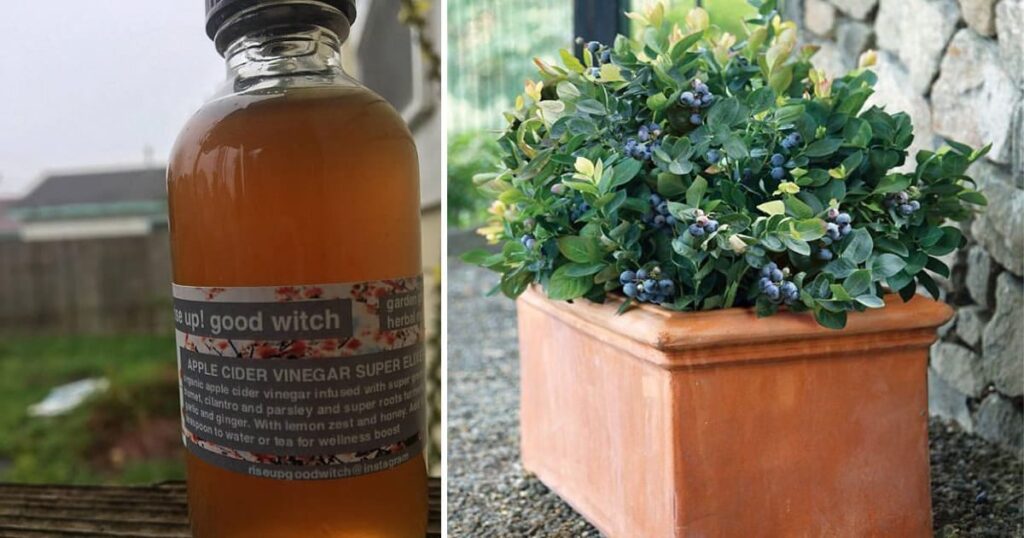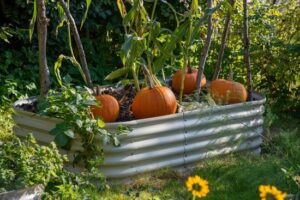Is Apple Cider Vinegar Good For Plants

Is Apple Cider Vinegar Good For Plants
Apple cider vinegar, commonly found in kitchen pantries, has recently garnered attention for its potential benefits in horticulture. As more gardeners seek natural and sustainable solutions for plant care, the use of apple cider vinegar has emerged as a popular topic. In this article, we delve into the question: Is apple cider vinegar good for plants?
I. Introduction
A. Definition and Composition of Apple Cider Vinegar
Apple cider vinegar is a type of vinegar made from fermented apple juice. It typically contains acetic acid, which gives it its characteristic sour taste, along with trace amounts of other acids, vitamins, and minerals. The fermentation process involves the conversion of sugars in the apple juice into alcohol, which is then further fermented to produce vinegar.
B. Rising Trend in Horticulture
In recent years, there has been a growing interest in natural and organic gardening practices. Gardeners are increasingly looking for alternatives to chemical fertilizers and pesticides, turning to household items like apple cider vinegar for plant care.
C. Purpose and Scope of the Article
This article aims to explore the potential benefits of using apple cider vinegar in plant care, as well as the best practices for its application. We will examine its effects on soil pH balance, its role as a natural fertilizer, and its effectiveness as a pest repellent.
II. Benefits of Apple Cider Vinegar for Plants
A. Improves Soil pH Balance
One of the primary benefits of apple cider vinegar for plants is its ability to adjust soil pH levels. Many plants thrive in slightly acidic soil conditions, and apple cider vinegar can help achieve this optimal pH range. By acidifying the soil, it makes essential nutrients more accessible to plants, promoting healthy growth and development.
B. Acts as a Natural Fertilizer
In addition to adjusting soil pH, apple cider vinegar also provides plants with essential nutrients. As a byproduct of the fermentation process, it contains trace amounts of potassium, phosphorus, and other minerals that are beneficial for plant growth. When applied in moderation, it can serve as a mild fertilizer, supplying plants with the nutrients they need to thrive.
C. Pest Repellent Properties
Apple cider vinegar is known for its strong odor, which can act as a natural deterrent for pests. When used as a foliar spray or soil drench, it can help repel insects and other pests that may damage plants. Additionally, its acidic nature can create an inhospitable environment for certain pests, further protecting plants from infestation.
III. Application Methods
A. Dilution Ratios
When using apple cider vinegar on plants, it is essential to dilute it properly to avoid causing harm. A typical dilution ratio is one to two tablespoons of apple cider vinegar per gallon of water for foliar sprays, and one to two cups per gallon of water for soil drenching. Adjust the concentration based on the specific needs of your plants and the severity of any issues you are addressing.
B. Spray Application
Foliar spraying is one of the most common methods of applying apple cider vinegar to plants. Mix the vinegar solution in a spray bottle and evenly coat the leaves and stems of the plants. Be sure to apply the spray in the morning or evening to avoid leaf burn from the sun.
C. Soil Drenching
For soil application, dilute the apple cider vinegar in water and pour it around the base of the plants. This method allows the vinegar to penetrate the soil and adjust its pH levels gradually. Avoid over-saturating the soil, as excessive moisture can lead to root rot and other issues.
IV. Precautions and Considerations
A. Potential Risks of Overuse
While apple cider vinegar can benefit plants when used appropriately, excessive use can have adverse effects. Overly acidic soil can harm plant roots and inhibit nutrient uptake, leading to stunted growth and poor health. Use apple cider vinegar sparingly and monitor your plants closely for any signs of stress or damage.
B. Compatibility with Different Plant Species
Not all plants respond the same way to apple cider vinegar. Some species may be more sensitive to its acidic properties, while others may benefit greatly from its use. Before applying apple cider vinegar to your plants, research their specific requirements and consider conducting a patch test on a small area to assess their reaction.
C. Environmental Impact
While apple cider vinegar is considered a natural product, its production still has environmental implications. The fermentation process generates carbon dioxide emissions, and the disposal of vinegar solutions may affect local ecosystems if not handled properly. Be mindful of the environmental impact of using apple cider vinegar and seek sustainable alternatives whenever possible.
V. Conclusion
In conclusion, apple cider vinegar can be a valuable tool in plant care when used responsibly. Its ability to adjust soil pH, provide nutrients, and repel pests makes it a versatile option for gardeners seeking natural solutions. However, it is essential to exercise caution and moderation to avoid potential risks to plant health and the environment. By understanding the benefits and considerations of using apple cider vinegar, gardeners can make informed decisions to support the health and vitality of their plants. So, next time you reach for that bottle of apple cider vinegar, consider giving your plants a dose of natural goodness.
—



